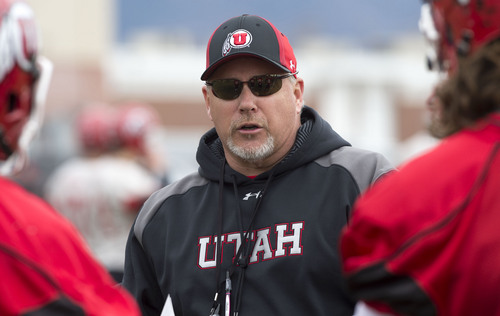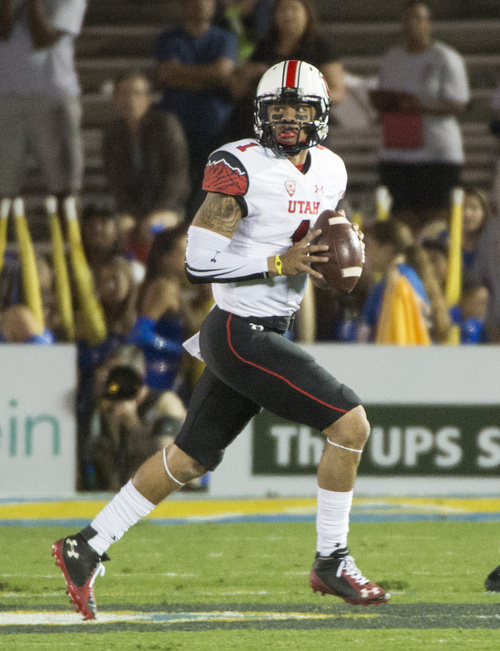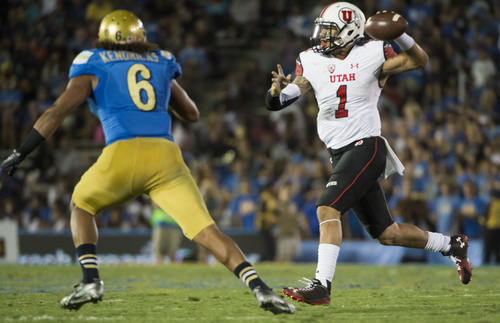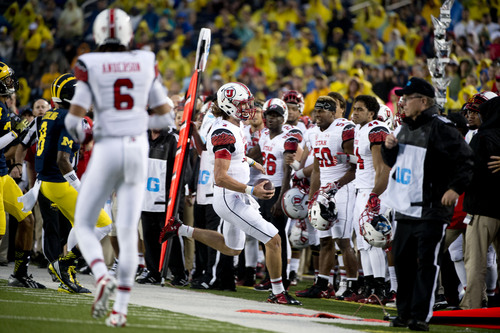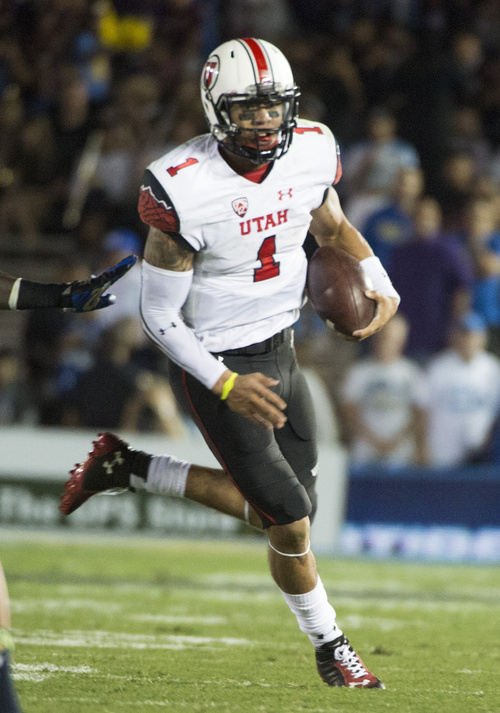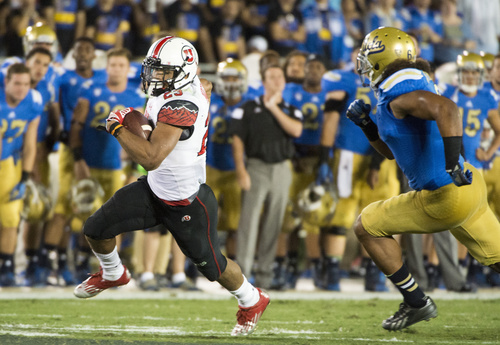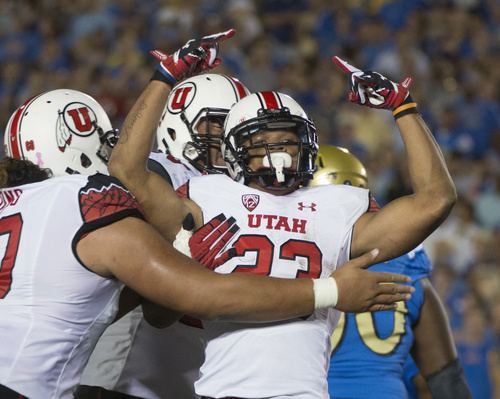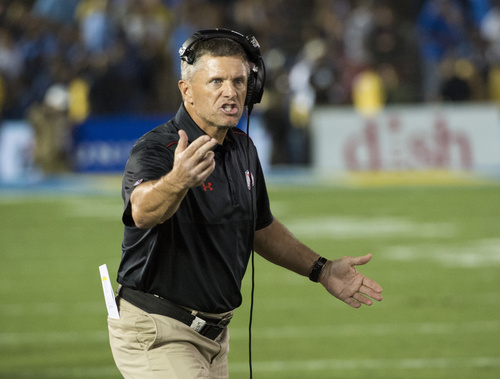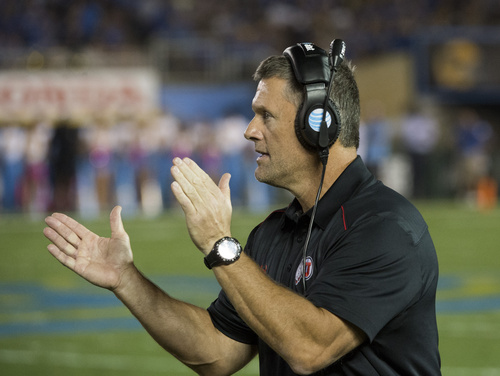This is an archived article that was published on sltrib.com in 2014, and information in the article may be outdated. It is provided only for personal research purposes and may not be reprinted.
There's a 99.8 percent chance of Utah losing one or more games during what's left of this season, according to ESPN's Football Power Index.
The likelihood of Ute coach Kyle Whittingham receiving a contract extension in December is 98.9 percent, by my calculation.
Those other possibilities — the 0.2 percent and the 1.1 percent — are just enough to make things interesting. The blessing and curse of Utah's status in the Pac-12 in 2014 is that no opponent appears overwhelming and no game presents itself as a guaranteed win, either.
The No. 20 Utes (4-1) could win the Pac-12 South title. They also could become bowl-eligible, yet not land any of the conference's affiliated bids.
By the calendar, Utah launches the second half of the season Thursday night at Oregon State. The Utes have played five of their 12 scheduled games and only two conference contests, but they're halfway through the 14-week season, with two open dates. So they face a seven-week sequence that will tell us everything about where Whittingham and his program stand.
The factors that conspired against the Utes in the second half of last season, when they lost five straight games after an upset of then-No. 5 Stanford, are working in their favor.
Quarterback Travis Wilson was repeatedly injured in October and November, and now — by all appearances — he's available as a quality backup to Kendal Thompson. The Utes failed to intercept a pass in any of those games, but they're opportunistic now. The special teams were nothing special in that stretch of 2013, and they're elite performers this year. Running back Devontae Booker gives Utah an entirely different dimension.
And only Oregon routed Utah last season. "We played good in a lot of those games, we just didn't come out with the win," Ute receiver Dres Anderson said this week. "We took a lot of those games down to the wire, but we didn't finish. We've got to make sure we finish this year."
For the sake of Whittingham and his staff, all the Utes must do is avoid disaster. Losing their jobs would require a major collapse at this stage. But the way this works, Whittingham needs to earn a new contract, not merely be allowed to stay.
That's where it gets slightly tricky. If he needed six wins going into the season, he may have arrived at four wins too quickly, including an upset of then-No. 8 UCLA this month. Would only two more victories satisfy anyone?
Seven is now the number. Whenever that seventh win comes, I'll declare Whittingham in the clear, regardless of what happens after that. If he's, let's say, 6-2 and loses out, is that good enough? No. Then again, if he's 6-2, he might win a conference championship.
That's life in the Pac-12 these days.
Whittingham knows the Utes have to show up every week, and they haven't always done that as Pac-12 members. He's cited an uninspired performance each year — at California in 2011, at Arizona State in 2012 and at Arizona in 2013.
This week, though, Whittingham challenged the description of a "letdown" at Arizona, following the win over Stanford. Well, his exact word after the Arizona game was "flat."
Even so, the Utes led 21-20 in the third quarter behind quarterback Adam Schulz, before losing 35-24 and starting their five-game skid, which ultimately doomed them to a 5-7 record.
A similar spiral is difficult to imagine this season. The next six games look like tossups, at best, before closing the schedule at Colorado.
Utah will have to produce some offense to win three or more of the remaining seven games, which brings us to the crux of Whittingham's tenure. Dave Christensen just may be the offensive coordinator who solves Utah's issues, at last. Thompson, the quarterback Christensen helped attract as an Oklahoma transfer, might be a big part of the answer.
But in the last three games, the Utes have produced 286, 357 and 342 yards. They have to do more offensively, because the defense and special teams won't always produce touchdowns.
That variable makes the rest of Utah's season a tiny bit scary, mixed with the potential for big things.


